The following is from a sermon I preached at Scio Christian Church on October 6, 2019. It took four hours to write and edit after several days of contemplation. It took only twenty minutes to preach. Since I speak without notes, the live presentation differed in some ways from the written version. I was proud of myself–I didn’t cry!
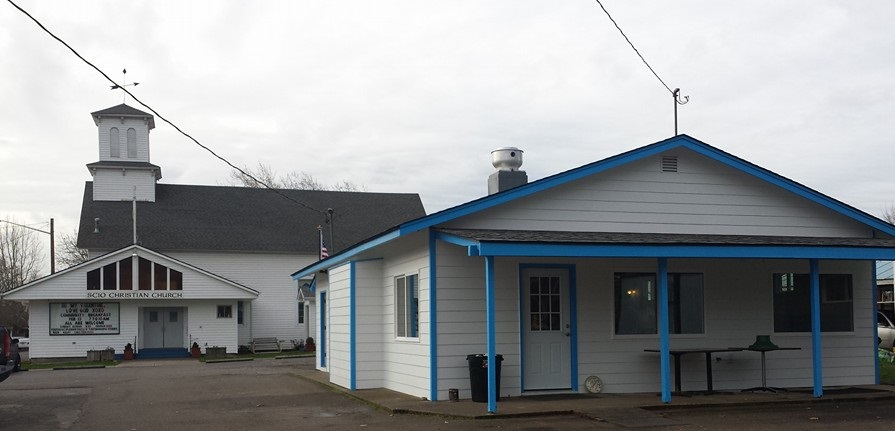
The Book of Acts, also known as the Acts of the Apostles, describes the birth and early growth of the church of Jesus Christ. The only reason we are looking at the history of the early church is to learn lessons which we can use in our lives now.
The events in chapter 9, which we are looking at today, probably happened three to five years after the resurrection of Jesus. These were both exciting and troubling times for the infant church. Thousands had declared their belief in and allegiance to the risen Christ. Wholesale miracles accompanied the preaching of the good news by the followers of Jesus. The success of the new movement, however, caused a violent reaction by the conservative and reactionary leaders of the Jewish faith who were determined to eradicate this new movement by whatever means were necessary.
The church was reeling in the aftermath of the murder of Stephen by Jewish extremists because he preached about Jesus. One man was particularly zealous in his hatred of the church, a man named Saul of Tarsus. Though Saul hadn’t been directly involved in the killing of Stephen, he had heartily approved, guarding the coats of those who stoned Stephen to death.
Saul went to the leaders of the Jews and requested authority to carry his inquisition against the church to the city of Damascus, receiving permission to seek out the followers of Jesus and bring them to Jerusalem in chains to be tried and punished for their heresy.
Where were the Romans while all of this was going on? After all, these events were happening in a Roman province. The ruling authorities were doubtless overjoyed to watch two sects of the Jews fighting with each other, even killing each other—they wouldn’t have time to rebel against Roman rule. The only reason the Romans had bothered to kill Jesus was the misguided fear he might lead an insurrection against their rule.
It was while traveling to Damascus to persecute the church that Saul was blinded by his encounter with the Lord Jesus Christ, which Leon talked about last week. Seldom has anyone undergone such as radical transformation as Saul of Tarsus. Saul’s sight was restored when a man named Ananias came to minister to him. He was baptized and suddenly completed one of the most radical U-turns ever seen.
It is probably safe to say that no transformation so radical and rapid ever took place. Saul immediately began to preach good news of Jesus Christ, whose followers he had been trying to imprison only three days earlier. This threw everyone into turmoil, followers of Jesus and Jewish leaders both. The followers of Jesus were understandably suspicious that this was some sort of trick. The Jews were angered by his traitorous behavior and wanted to have him killed.
In Nazi Germany in the 1940s one of the leaders of the plot to kill all of the Jews in Europe was a man named Adolph Eichmann. Can you imagine the violent reaction of Hitler and the Nazi party if Adolph Eichmann had been circumcised and become a rabbi? He would not have lived very long. So it was with Saul. Some followers of Jesus, convinced he was real, lowered him over the city wall of Damascus in a basket one night so he could escape his pursuers.
Saul went to Jerusalem to seek out the followers of Jesus—to join them, not imprison them. After initial skepticism they realized that Saul had indeed met the living Jesus Christ on the road to Damascus and they all joined together in preaching the good news of Jesus all over the area. Meanwhile, the Jewish leaders continued to pursue him with the intention of having him killed.
The man who would become known as The Apostle Paul was a polarizing figure. He attracted attention wherever he went and whatever he did—no one had to ask if Saul was in the house. The believers finally spirited Paul away to his home town of Tarsus for his own safety. At this point in time it’s probably safe to say the leaders of the Jerusalem church heaved a huge sigh of relief. While they undoubtedly rejoiced at the miraculous conversion of their chief antagonist, the mayhem that constantly surrounded the man had to be trying.
It is probably safe to say that none of us has found Jesus like Saul did. In his book ‘Varieties of Religious Experience’ William James explains that while some may experience enlightenment by sudden revelation, others grow to enlightenment in a slower educational process. God meets us where we need to be met. He uses whatever means are necessary to gain our attention.
My own experience is very different from Saul’s:
In the wee hours of May 1, 2014 I struck what I hope was the bottom of my life. I was in despair over how my life was going. I had been drinking whiskey all night and decided I was going to kill myself. When day came my intention was to buy ahalf gallon of Jim Beam, a length of garden hose and a roll of black duct tape and drive to Iowa to kill myself. Long before I was born my paternal grandfather had taken his own life by asphyxiating himself in his automobile beside a deserted and frozen corn field in central Iowa. Having a flair for the dramatic, I had decided that what was good enough for Grandpa . . . My plan was to drive from my home in Indiana to Iowa several hours away—that’s why I needed the Jim Beam. I knew within a half mile or so where Grandpa died. My plan was to arrive after dark, park beside a corn field, place the hose in the exhaust pipe of my car and run it into the passenger compartment, then start the motor and wait for carbon monoxide to take me away. The black duct tape was to cover my headlights (which are always on if the engine is running) so no one would come to investigate before I was dead.
Then, a funny thing happened. At three in the morning I decided to do a load of laundry because I didn’t want to be found dead wearing dirty clothes. When daylight came, and it was time for the stores selling the things I would need to open for business, I climbed into my car. Somehow, instead of buying the supplies I needed, I decided to find help. I spent the next nine days in a psychiatric ward.
I was raised in the church. My father was a preacher for fifty-nine years. For the first thirty years of my life the church was the center of my life. Then, at the age of thirty, I walked away for reasons I don’t fully understand to this day. My break down and stay in the hospital did not produce a full-blown spiritual experience, but planted the seed for a spiritual experience which has been very gradual.
When I got out of the hospital I knew I wanted my life to count for something. I had no idea what form that meaning would take. Essentially, I remained an unbeliever for another eighteen months or so. Then I became acquainted with a woman who had undergone dramatic and traumatic changes in her life, changes which removed her from the life she had known and caused most of her friends and her church to reject her. Yet, she somehow retained her faith in Jesus. Her faith saved her from insanity and death. I heard her story and realized if she could have faith in Jesus, so could I.
If anyone had told me five years ago I would be standing in a church preaching about Jesus I would have told them they were nuts, probably with a stream of profanity. Like I said, the changes in my life have been very gradual. It wasn’t until I returned to Oregon from Indiana three years ago that I went to church because Iwanted it and valued it. For a couple of years after leaving the hospital I lived with my family and I attended church with them just to be polite.
Anyway, one thing lead to another and on the last Sunday of 2018 I walked through the doors of Scio Christian Church for the first time in more than forty-one years. My first visit was something of an accident, but I felt at home and kept coming back. So, here I am—who could have predicted it? I’m part of the way through a very slow U-turn. That’s my story. What is your story?
All of us have a story to tell that can help others to know Jesus. It doesn’t matter whether you’ve known the Lord for fifty years or fifty days. When we tell others what Jesus has done for us we aren’t being sales people—we’re sharing good news. When I was in the nut house the people who helped me most in my recovery were not the doctors and nurse, but my fellow patients—people who had arrived only a little bit before me. We are surrounded by hurting people who could use a little bit of good news. Any small thing we have may be more than what they have at the moment.
When I walked into Scio Christian Church last December I was immediately welcomed by Pat and Ned and Lisa and Marcus, among others. It was obvious from to me from the start that his church was a place of refuge for some people who don’t necessarily fit in other places. People find love and acceptance here. People’s lives have been changed here. We have been a light to the community of Scio.
In recent weeks some serious problems have arisen in our church. A few months ago the church brought in Pastor Dan to share the ministry with Pastor Mike and Pastor Leon. Sadly, disagreements arose over what direction the church should take and who should lead it in the future. Pastor Mike felt he needed to leave for the peace of the fellowship. However, the disagreements intensified and came to a head back in August. When the dust settled Pastor Dan and several other church members chose to leave us.
I was not involved in the dispute that rocked the church. I am not sure exactly what happened or why it happened. I am not pointing fingers. I do not believe that anyone involved had evil intentions. However the peace of the church has been harmed by these recent events. Church members have been hurt and are upset. Scio is a small community and word of our problems has gotten out and the church has received something of a black eye.
All churches experience problems. The body of Christ is made up of very imperfect humans. That’s why we are here. We know we are imperfect and we are here to become more like Jesus. The mark of a successful church is how it deals with problems that arise. Scio Christian Church has been here for 165 years, so the church has weathered a few storms in its past.
The recent happenings here have created an opportunity for us to grow. Going back to Acts chapter 9, where we began, we find a church which had been hounded by the Jewish religious leaders and rocked by the murder of Stephen, one of its best preachers. Then, hard on the heels of the murder of Stephen, came the mayhem surrounding the conversion of Saul. The church badly needed to take a deep breath, regroup and head into an uncertain future.
Acts 9:31 tells us how the Lord provided: The church knew peace for a while. It was made strong and comforted by the Holy Spirit. It honored the Lord and more people were attracted to the church. The church had made a bit of a U-turn, sailed out of a storm and into calm waters. It had survived a crisis and became better for it.
By the power of the Holy Spirit Scio Christian Church can grow from the things that have happened here recently—do its own U-turn. Denial of recent troubles is not an option—what has happened has happened.
Please pray for those who have been damaged and for those who have felt they needed to leave. In a town this small it is inevitable that you will run into these brothers and sisters. Let them know you love them. They may not return. Perhaps they shouldn’t return. Love them. Let the Lord do the rest.
When people are brought into contact with Scio Christian Church, let them say ‘See how they love one another!’ Amen—let it be so.
— Being Stephen W. Smith (October 7, 2019)


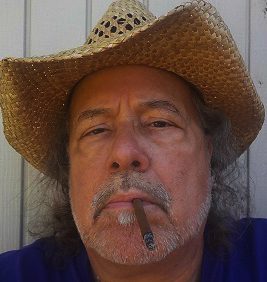

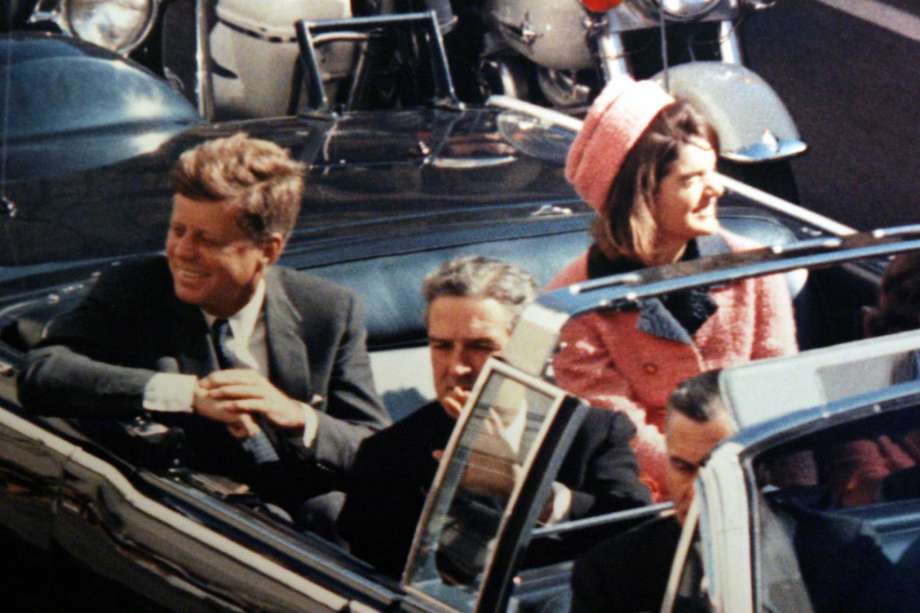 Sometimes it seems like yesterday, but it’s been fifty-six years. Nearly everyone near my age (I’m 66) can remember exactly where they were and what they were doing . . .
Sometimes it seems like yesterday, but it’s been fifty-six years. Nearly everyone near my age (I’m 66) can remember exactly where they were and what they were doing . . .
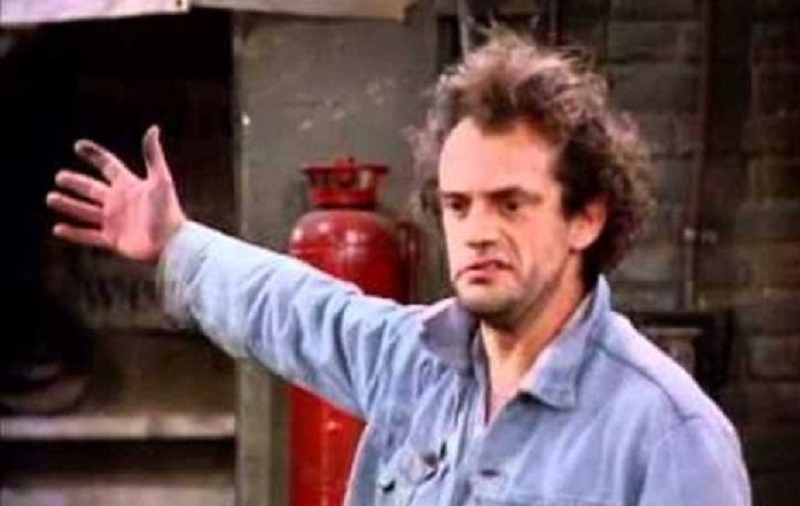
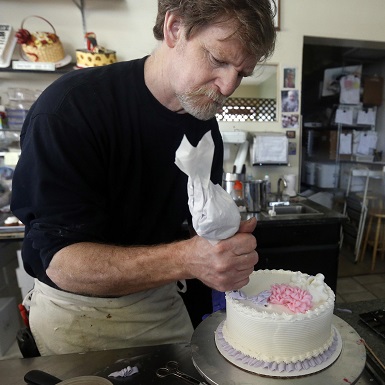 The United States Supreme Court has ruled in favor of Colorado baker Jack Phillips, who refused to provide a wedding cake for a gay couple, citing his Christian beliefs*. However, the decision fails to truly settle the issue of whether businesses can refuse service to customers based upon their religious scruples—the Court found that the Colorado Civil Rights Commission had exhibited hostility toward Phillips, and thus violated his First Amendment rights. So, the whole issue is really still up in the air.
The United States Supreme Court has ruled in favor of Colorado baker Jack Phillips, who refused to provide a wedding cake for a gay couple, citing his Christian beliefs*. However, the decision fails to truly settle the issue of whether businesses can refuse service to customers based upon their religious scruples—the Court found that the Colorado Civil Rights Commission had exhibited hostility toward Phillips, and thus violated his First Amendment rights. So, the whole issue is really still up in the air. On Wednesday I met with the dentist, and as I suspected, my teeth are a mess. I have no dental insurance and the estimated cost of bringing my teeth into compliance for the transplant list is several thousand dollars. This news was a terrible blow—it would take several years to get the work done. Here comes the Wreckage of the Future: By the time I get my teeth fixed I’ll probably be too old for transplant surgery. However, I could still put a somewhat positive spin on the news: The worst thing that could happen is that I’d be on dialysis for the rest of my life—and I could live with that.
On Wednesday I met with the dentist, and as I suspected, my teeth are a mess. I have no dental insurance and the estimated cost of bringing my teeth into compliance for the transplant list is several thousand dollars. This news was a terrible blow—it would take several years to get the work done. Here comes the Wreckage of the Future: By the time I get my teeth fixed I’ll probably be too old for transplant surgery. However, I could still put a somewhat positive spin on the news: The worst thing that could happen is that I’d be on dialysis for the rest of my life—and I could live with that.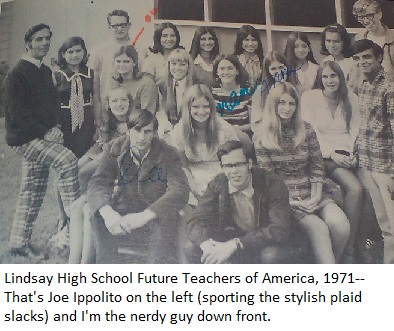 My favorite high school teacher was Joe Ippolito. He was my journalism teacher at Lindsay (California) High School from 1969, when I arrived at LHS, until 1971, when I graduated. As you can tell from his name, Joe Ippolito was of Italian descent. He was in his early thirties and originally from New Jersey. Mr. Ippolito was warm, funny and caring—simply a marvelous teacher. I also took classes from him in Science Fiction, Literary Heritage of the Minorities and The Humanities in addition to journalism. He was advisor to Future Teachers of America, of which I was a member for two years. During my senior year, especially, I spent most of my study hall periods working in the journalism room, just off Mr. I’s classroom. To my teenaged eyes, and to my adult eyes nearly fifty years later, Joe Ippolito was the consummate teacher. During my sixteen years of formal education I had only three teaches I considered outstanding, and ‘Mr. I’ is at the pinnacle of that pyramid.
My favorite high school teacher was Joe Ippolito. He was my journalism teacher at Lindsay (California) High School from 1969, when I arrived at LHS, until 1971, when I graduated. As you can tell from his name, Joe Ippolito was of Italian descent. He was in his early thirties and originally from New Jersey. Mr. Ippolito was warm, funny and caring—simply a marvelous teacher. I also took classes from him in Science Fiction, Literary Heritage of the Minorities and The Humanities in addition to journalism. He was advisor to Future Teachers of America, of which I was a member for two years. During my senior year, especially, I spent most of my study hall periods working in the journalism room, just off Mr. I’s classroom. To my teenaged eyes, and to my adult eyes nearly fifty years later, Joe Ippolito was the consummate teacher. During my sixteen years of formal education I had only three teaches I considered outstanding, and ‘Mr. I’ is at the pinnacle of that pyramid.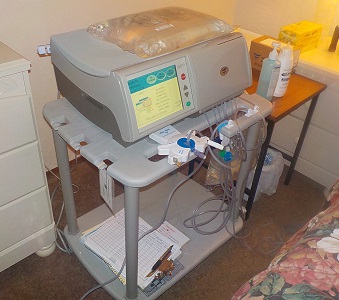 The photo at left is of Phil, all ready for another night of work. Phil is a Liberty Recycler, the machine that performs Peritoneal Dialysis on me for nine hours and twenty-five minutes each night, pumping in ten liters of fluid in four equal segments, then draining it—all this while I try to sleep. Phil hums and buzzes and wheezes all while casting an eerie glow over my bedroom, a glow which makes my dogs look not quite human . . . well, I guess they wouldn’t now, would they? It takes about forty-five minutes to set Phil up for business each night, then another fifteen or so to start him up and hook myself up at bedtime.
The photo at left is of Phil, all ready for another night of work. Phil is a Liberty Recycler, the machine that performs Peritoneal Dialysis on me for nine hours and twenty-five minutes each night, pumping in ten liters of fluid in four equal segments, then draining it—all this while I try to sleep. Phil hums and buzzes and wheezes all while casting an eerie glow over my bedroom, a glow which makes my dogs look not quite human . . . well, I guess they wouldn’t now, would they? It takes about forty-five minutes to set Phil up for business each night, then another fifteen or so to start him up and hook myself up at bedtime.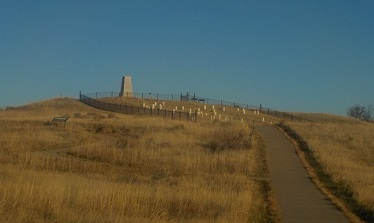 The Little Bighorn battlefield was peaceful the day I visited. The place where George Armstrong Custer died is on a hill in southern Montana, not far from the Wyoming border. Aside from the grave markers dotting the hillside, there is nothing to suggest that this is the site of one of the most infamous events in the history of the United States of America. In July of 1876 Colonel George Custer and more than two hundred troopers of the Seventh Cavalry were wiped out by a coalition of Native American warriors led by Sitting Bull and Crazy Horse.
The Little Bighorn battlefield was peaceful the day I visited. The place where George Armstrong Custer died is on a hill in southern Montana, not far from the Wyoming border. Aside from the grave markers dotting the hillside, there is nothing to suggest that this is the site of one of the most infamous events in the history of the United States of America. In July of 1876 Colonel George Custer and more than two hundred troopers of the Seventh Cavalry were wiped out by a coalition of Native American warriors led by Sitting Bull and Crazy Horse.